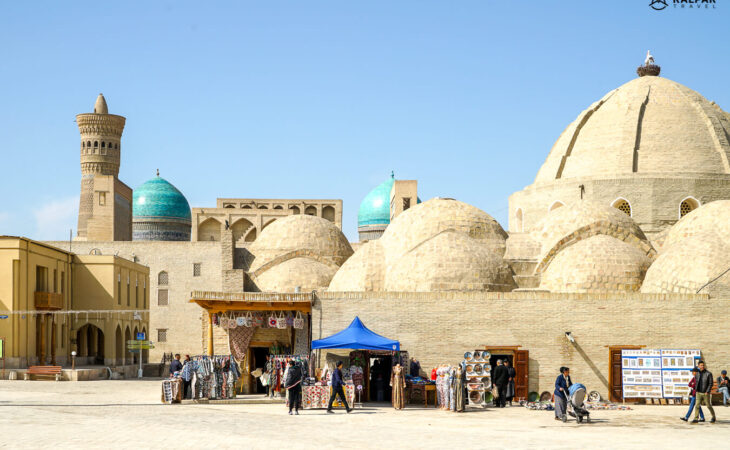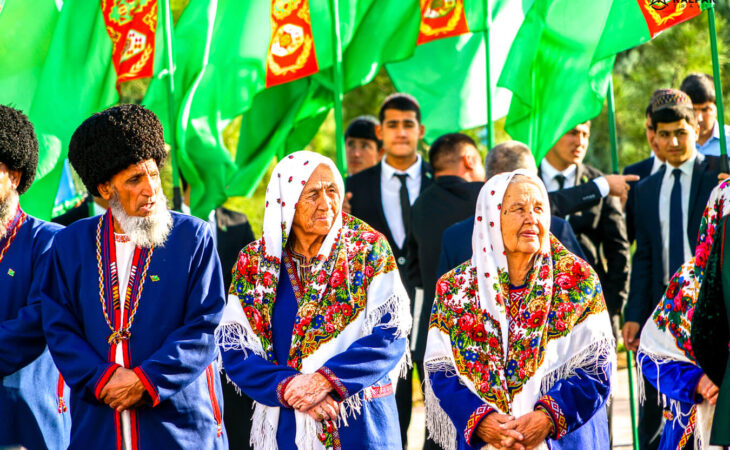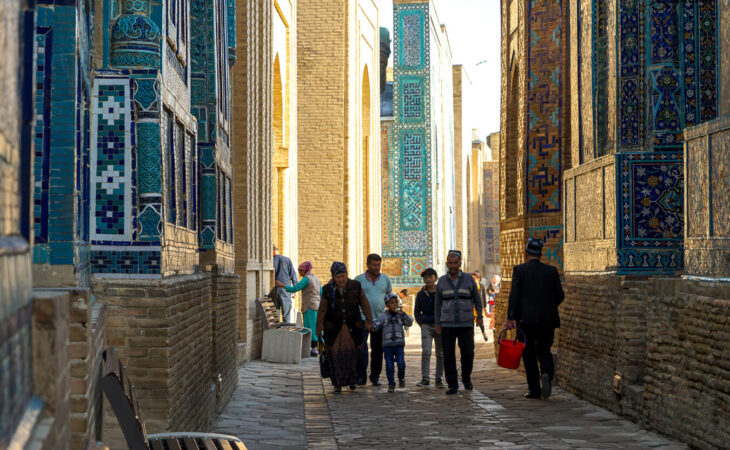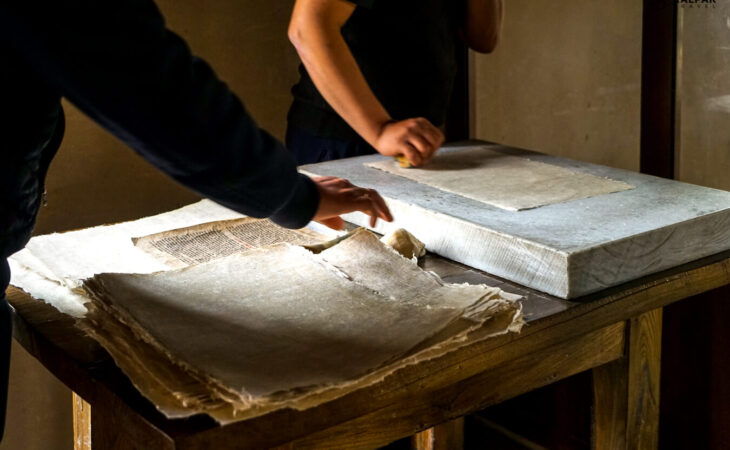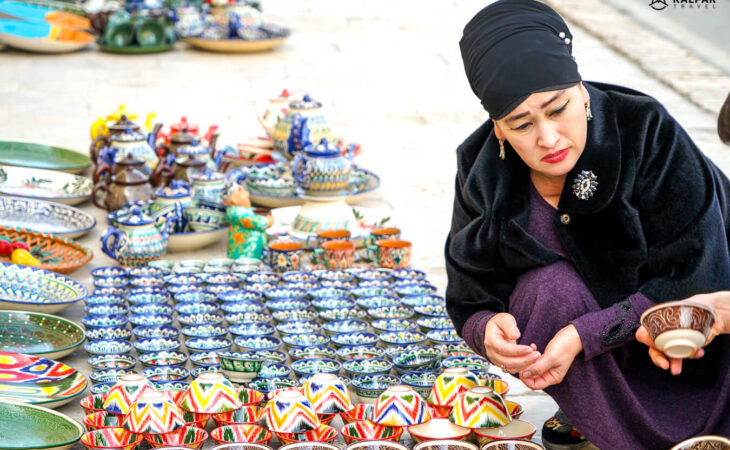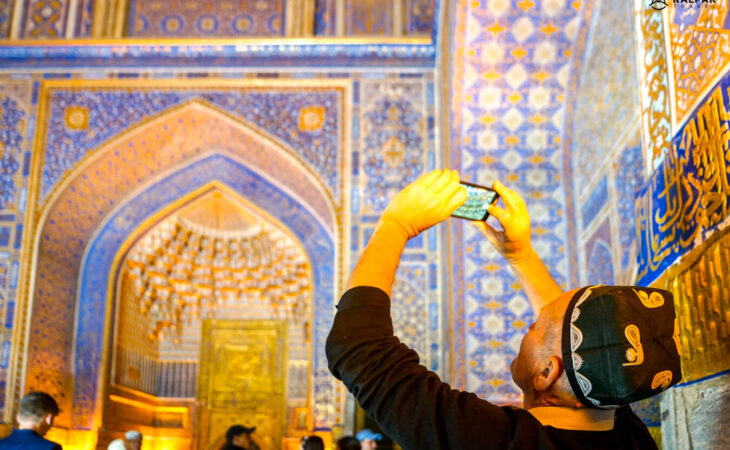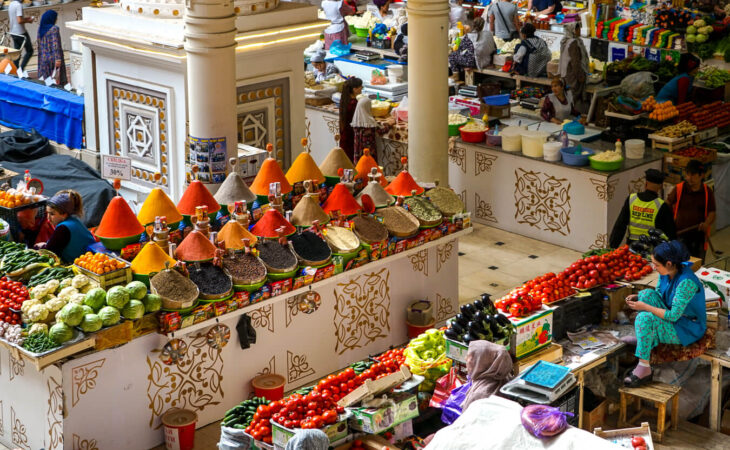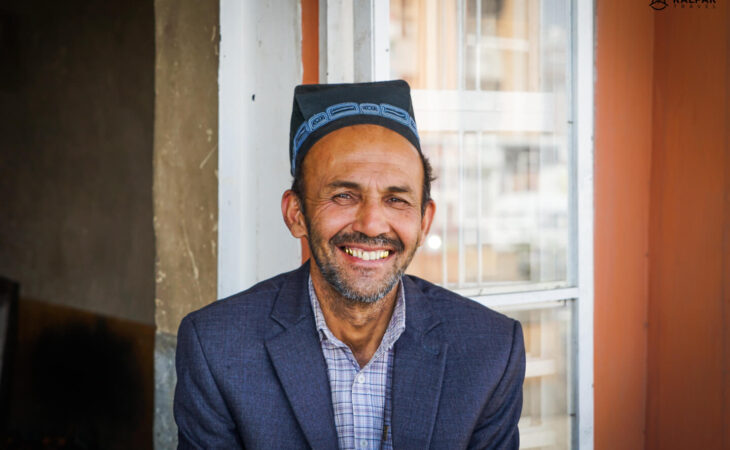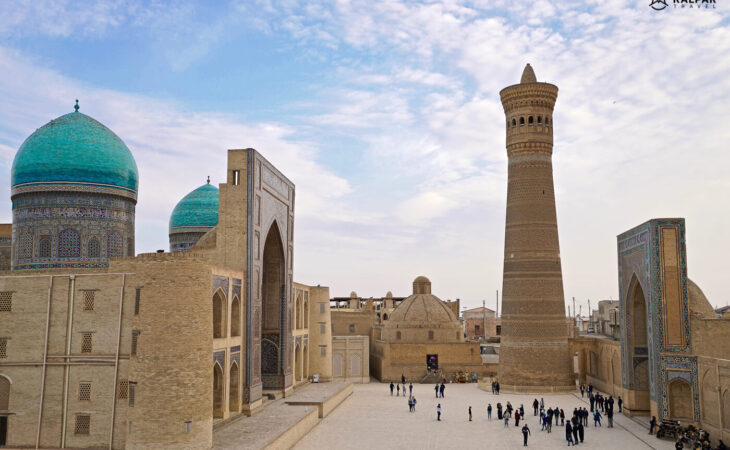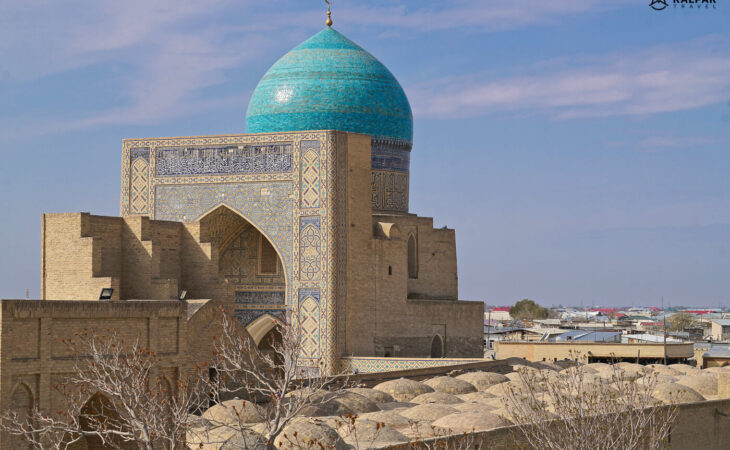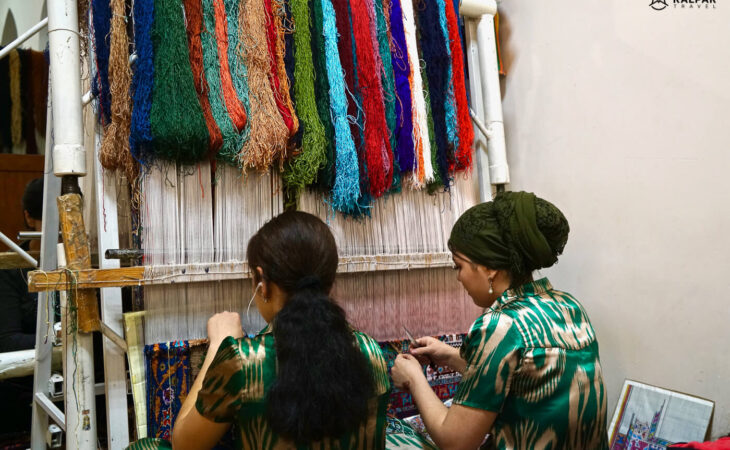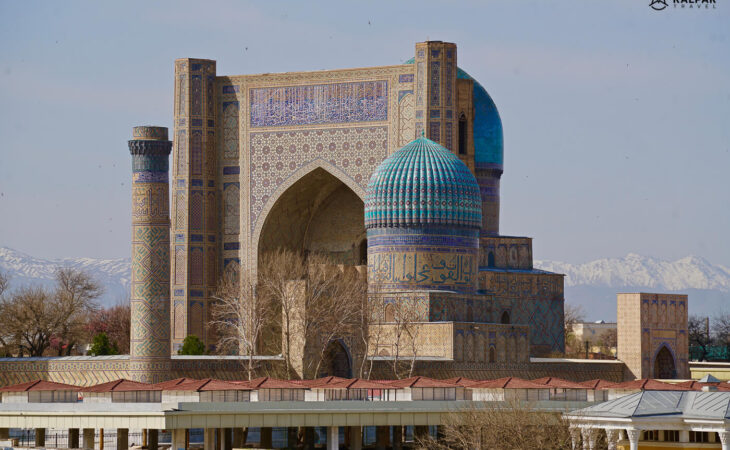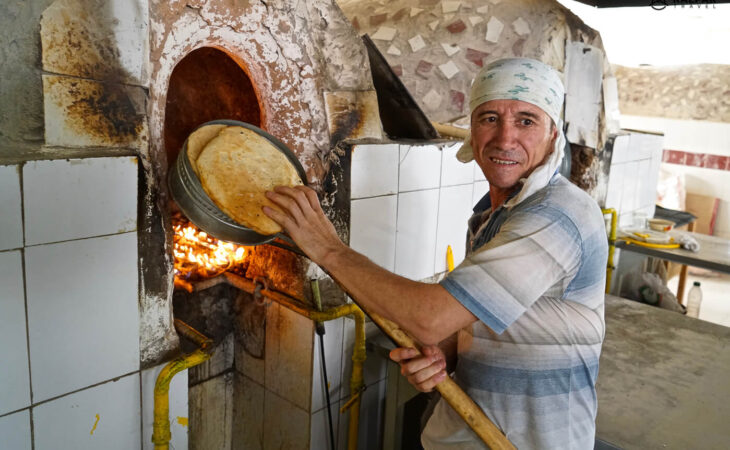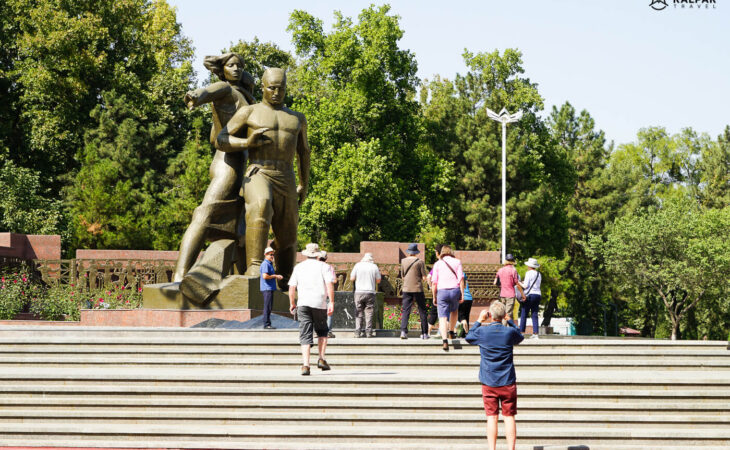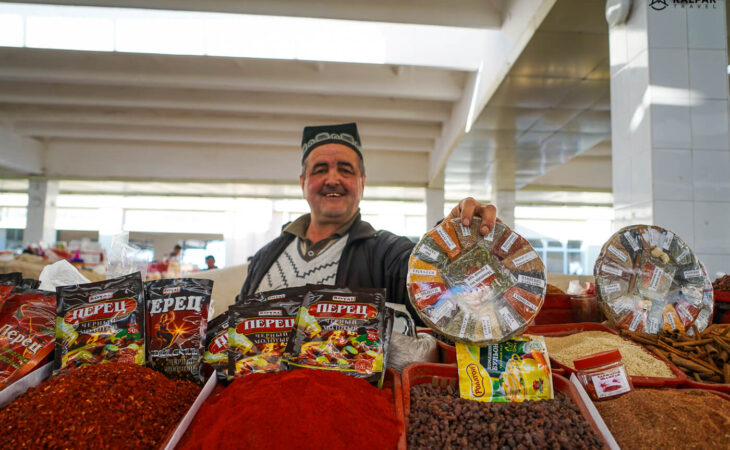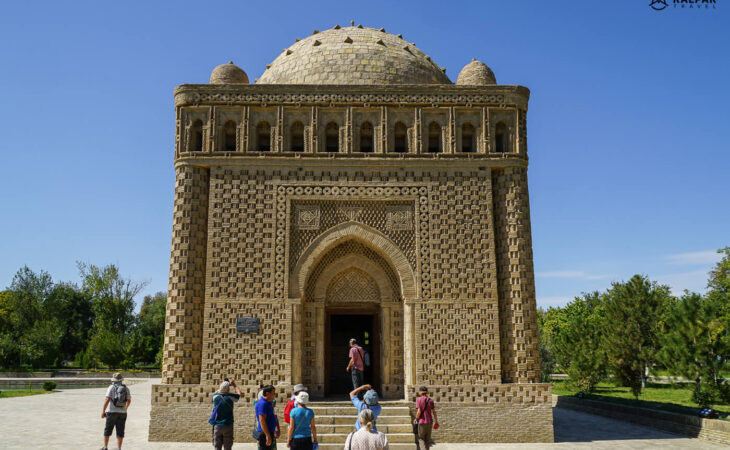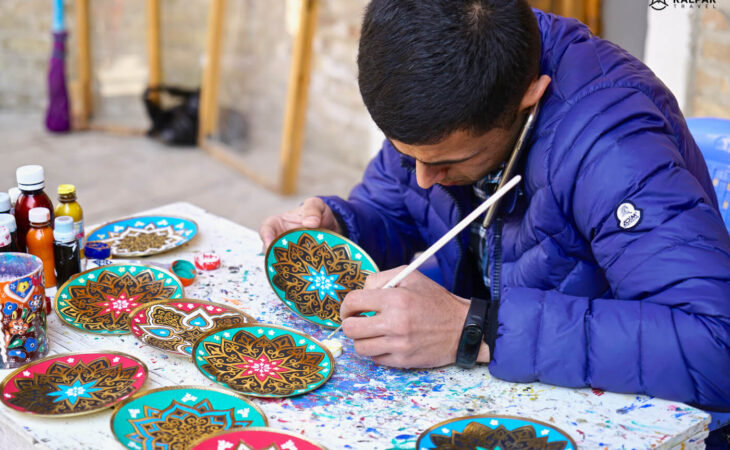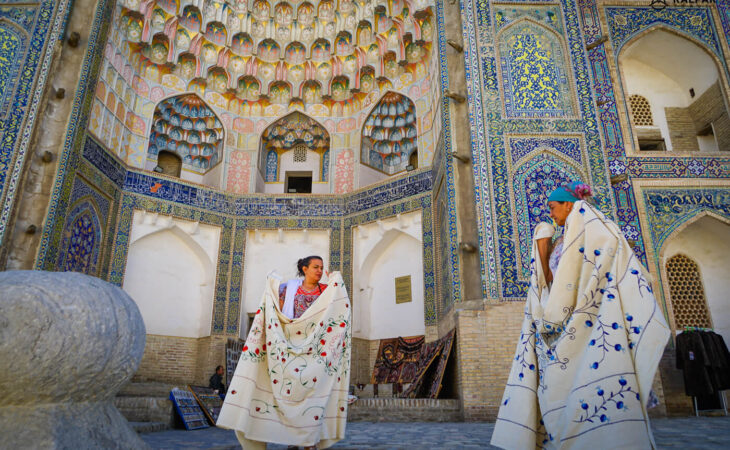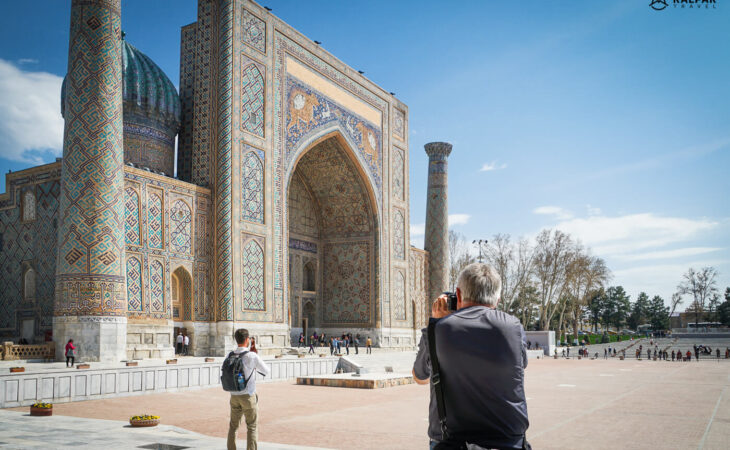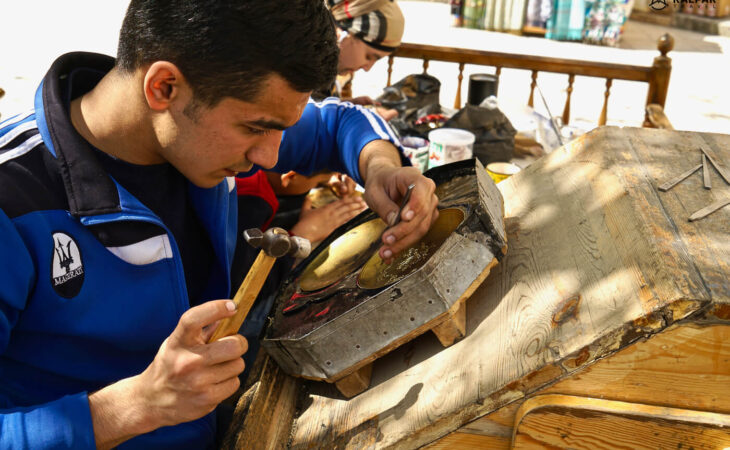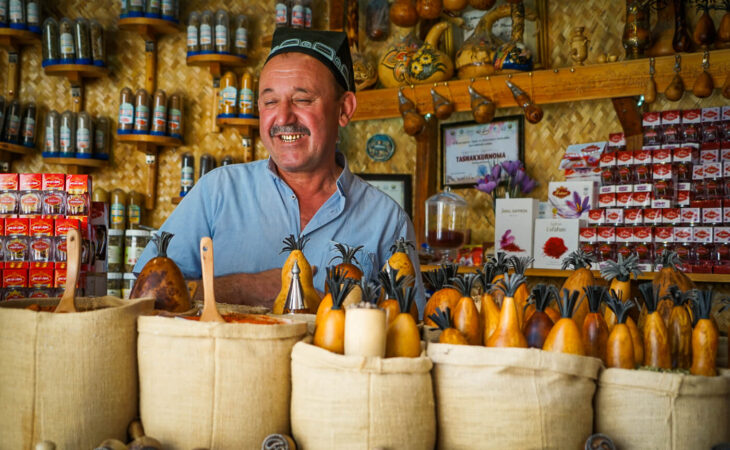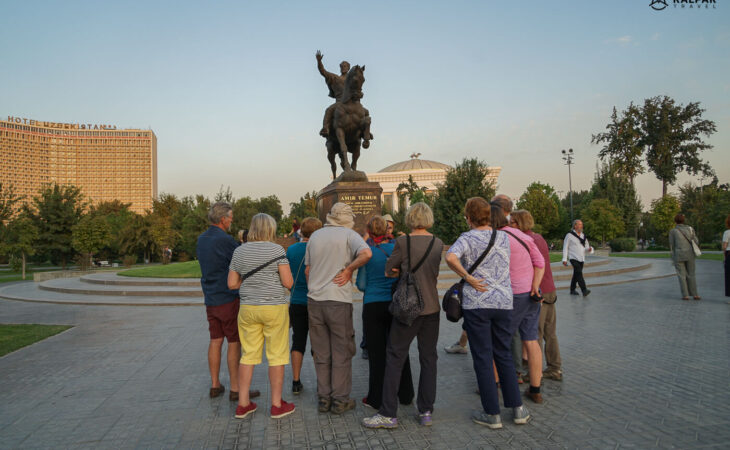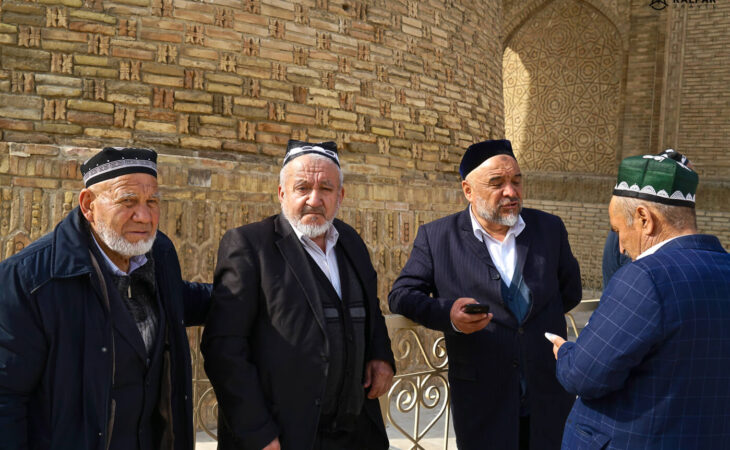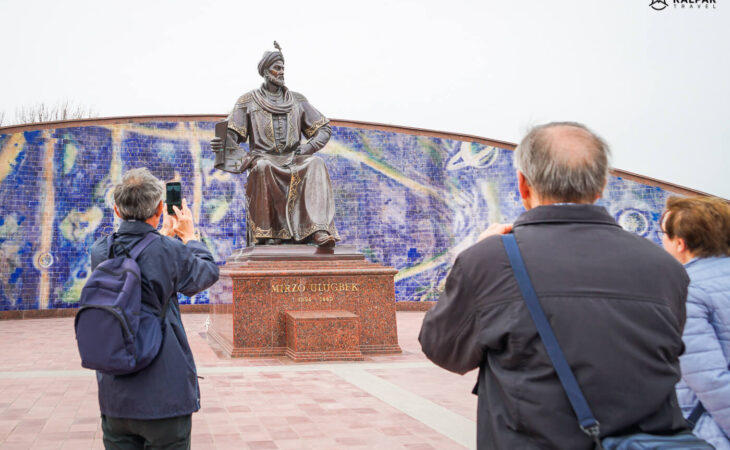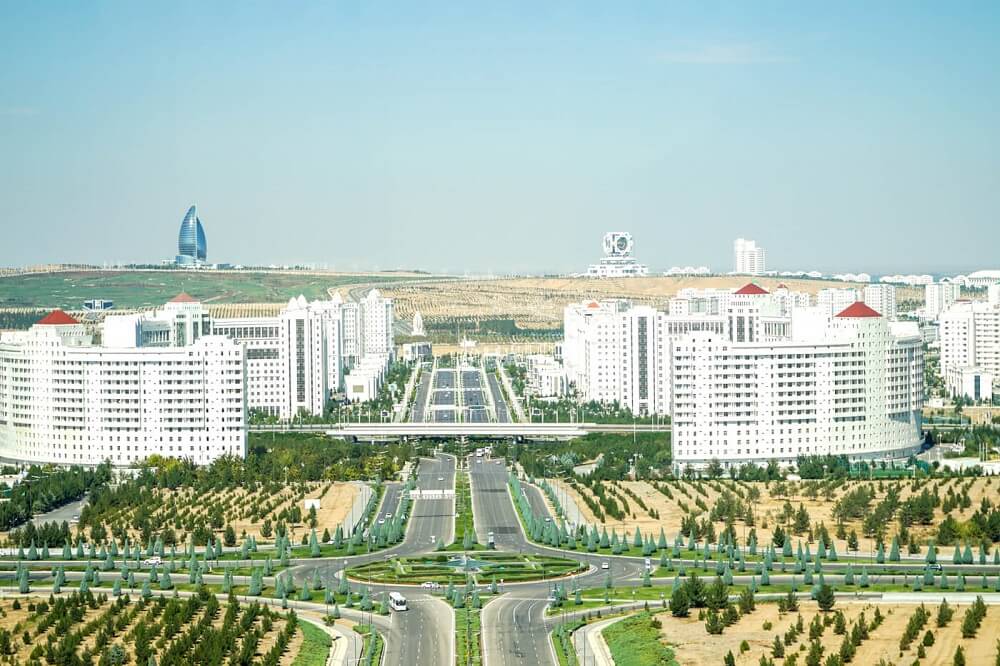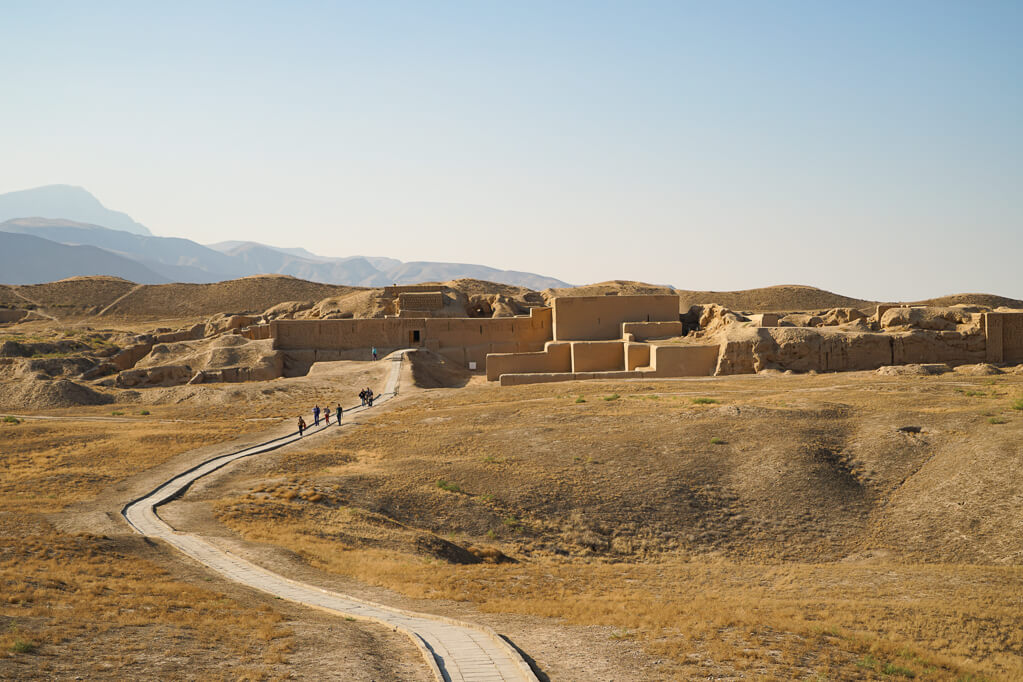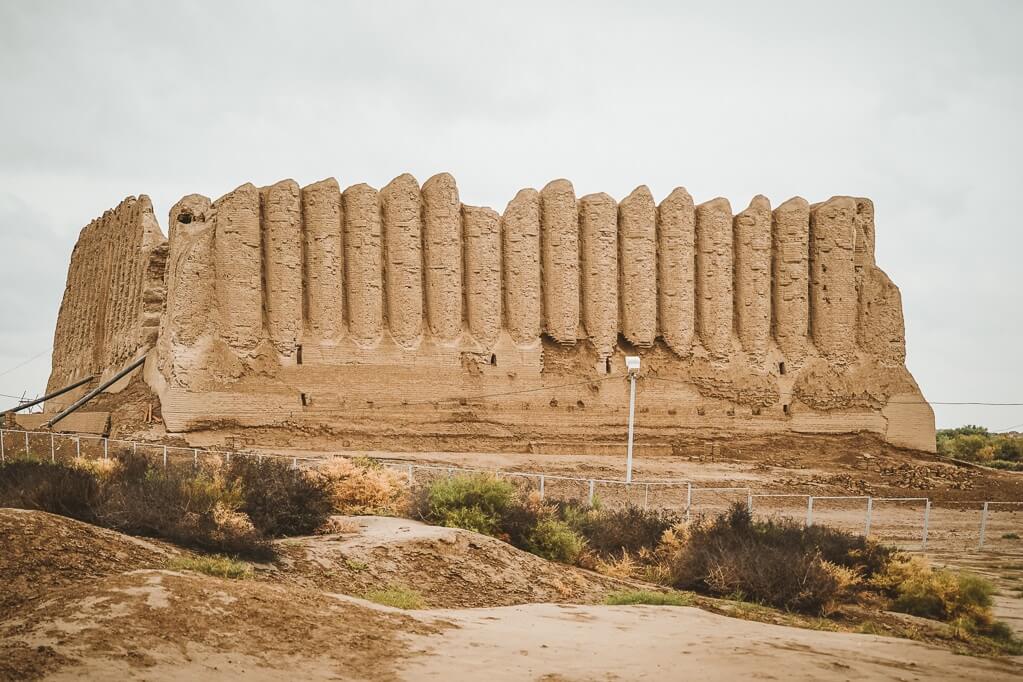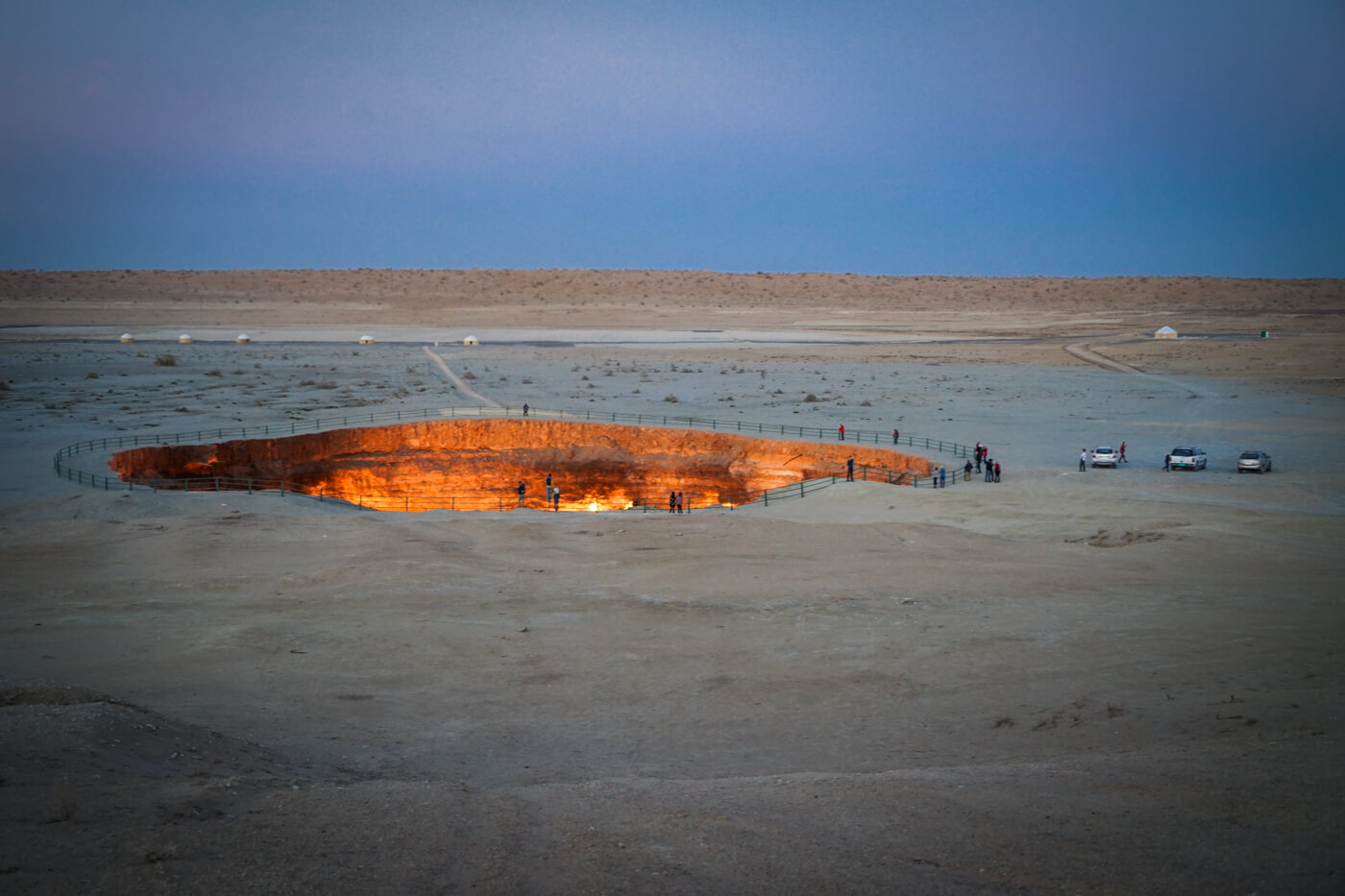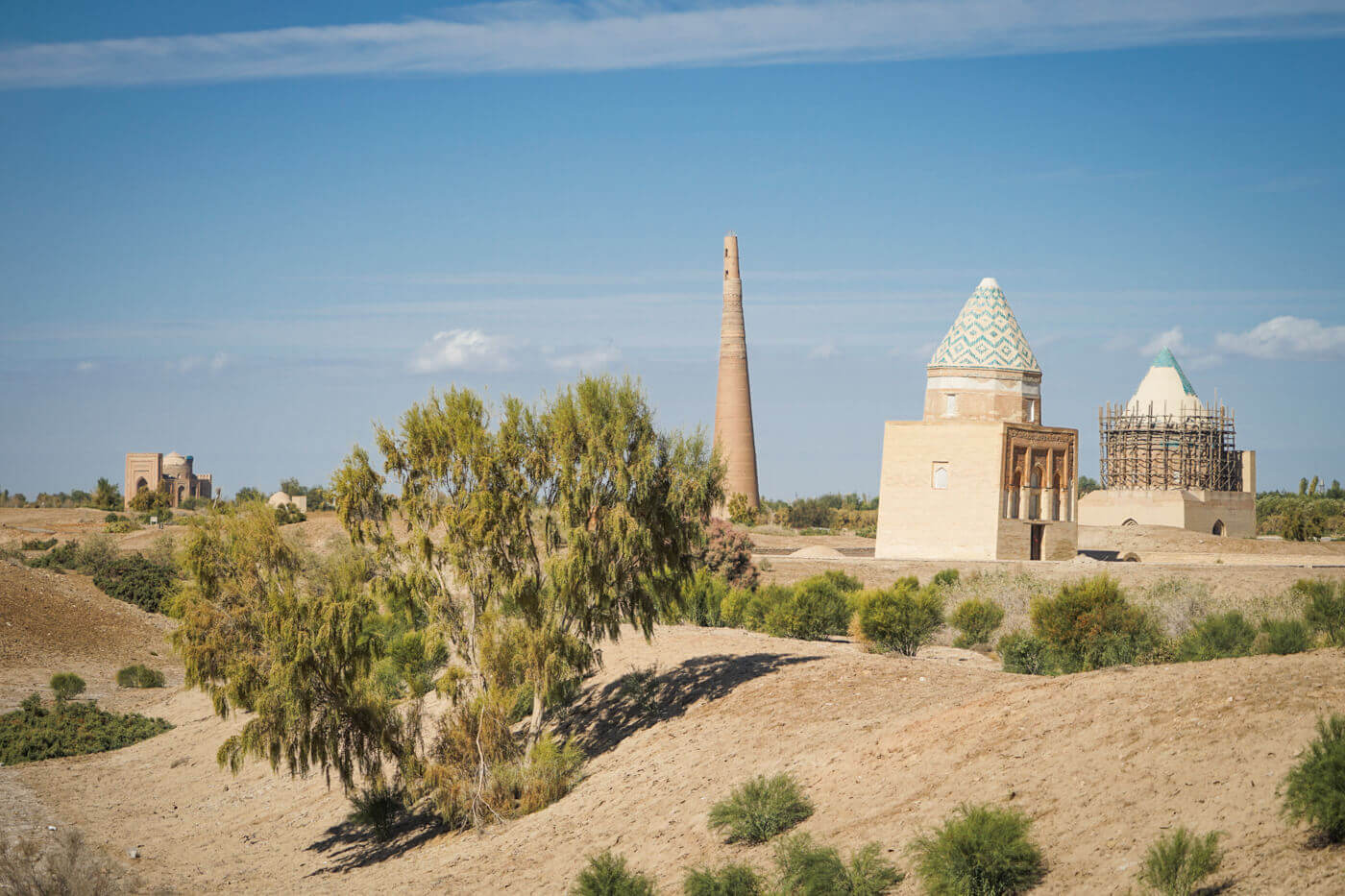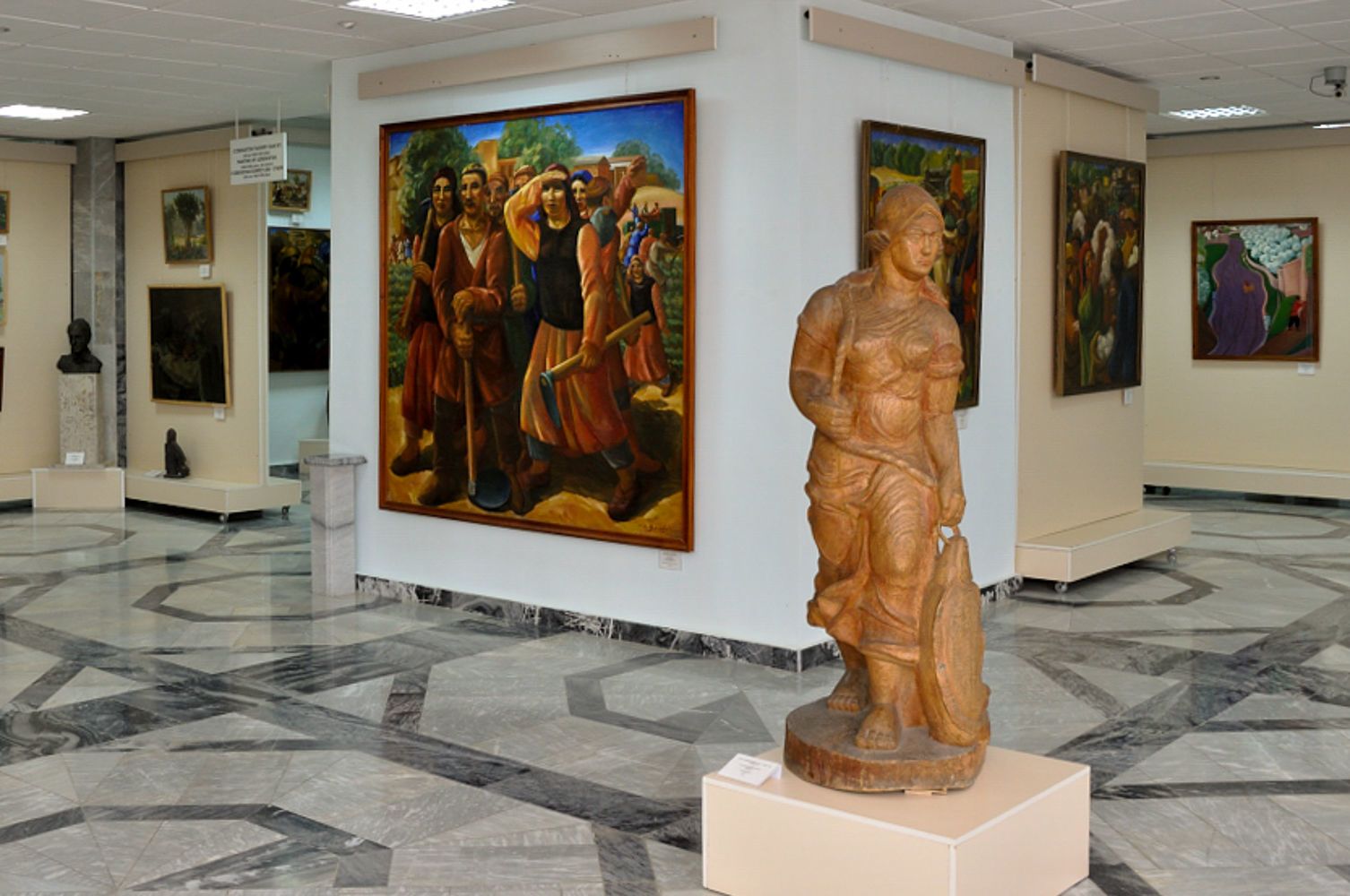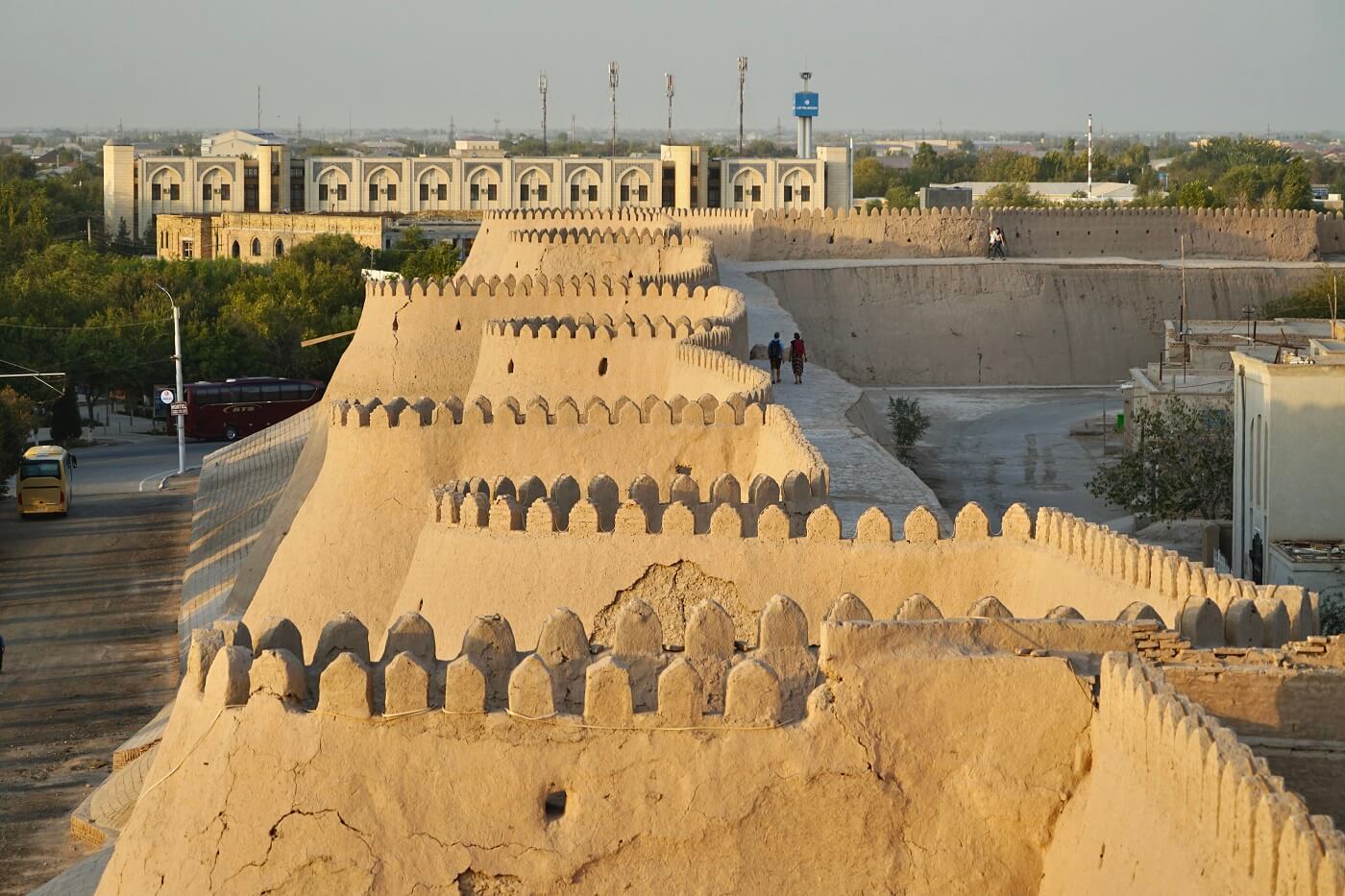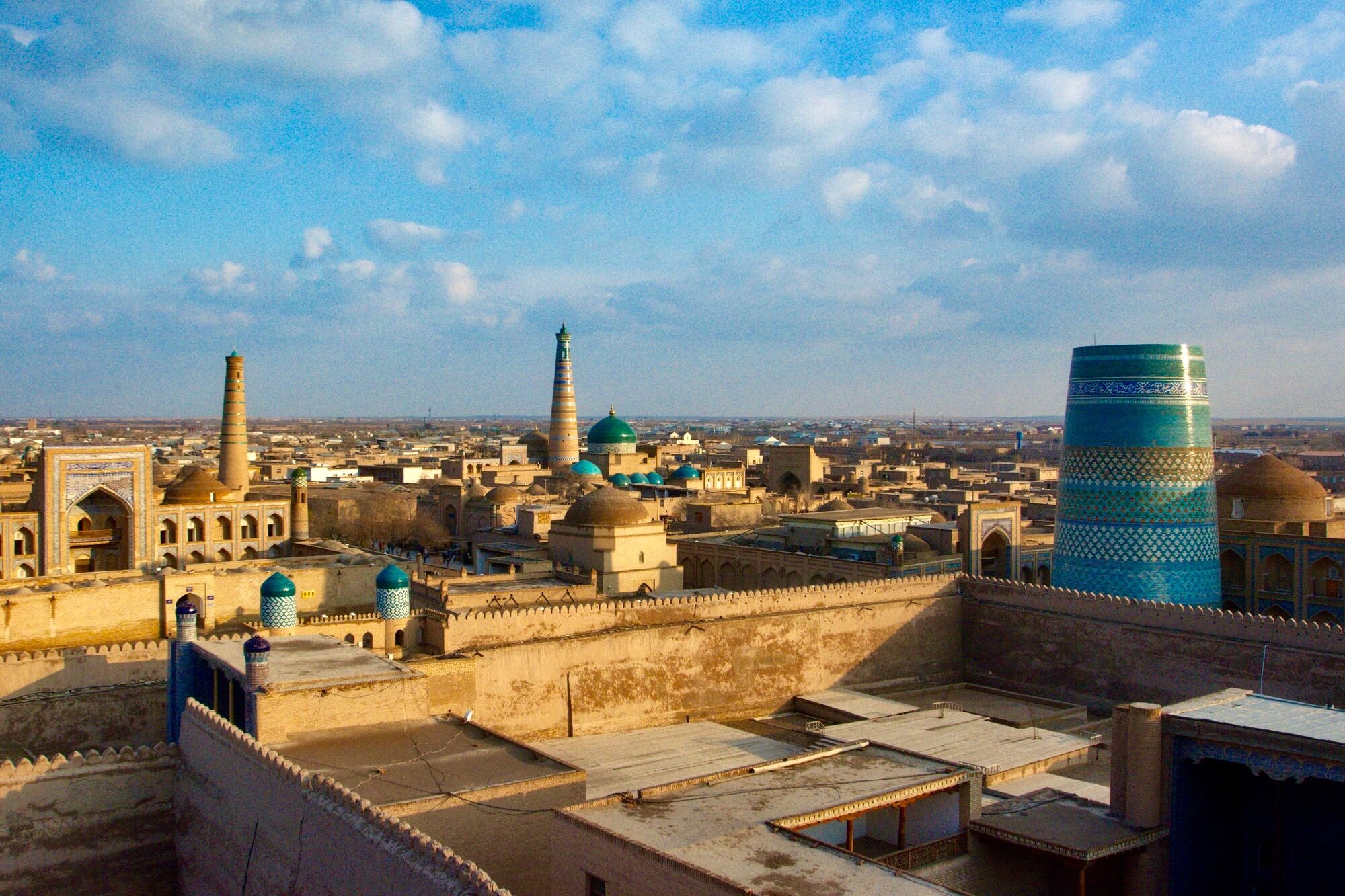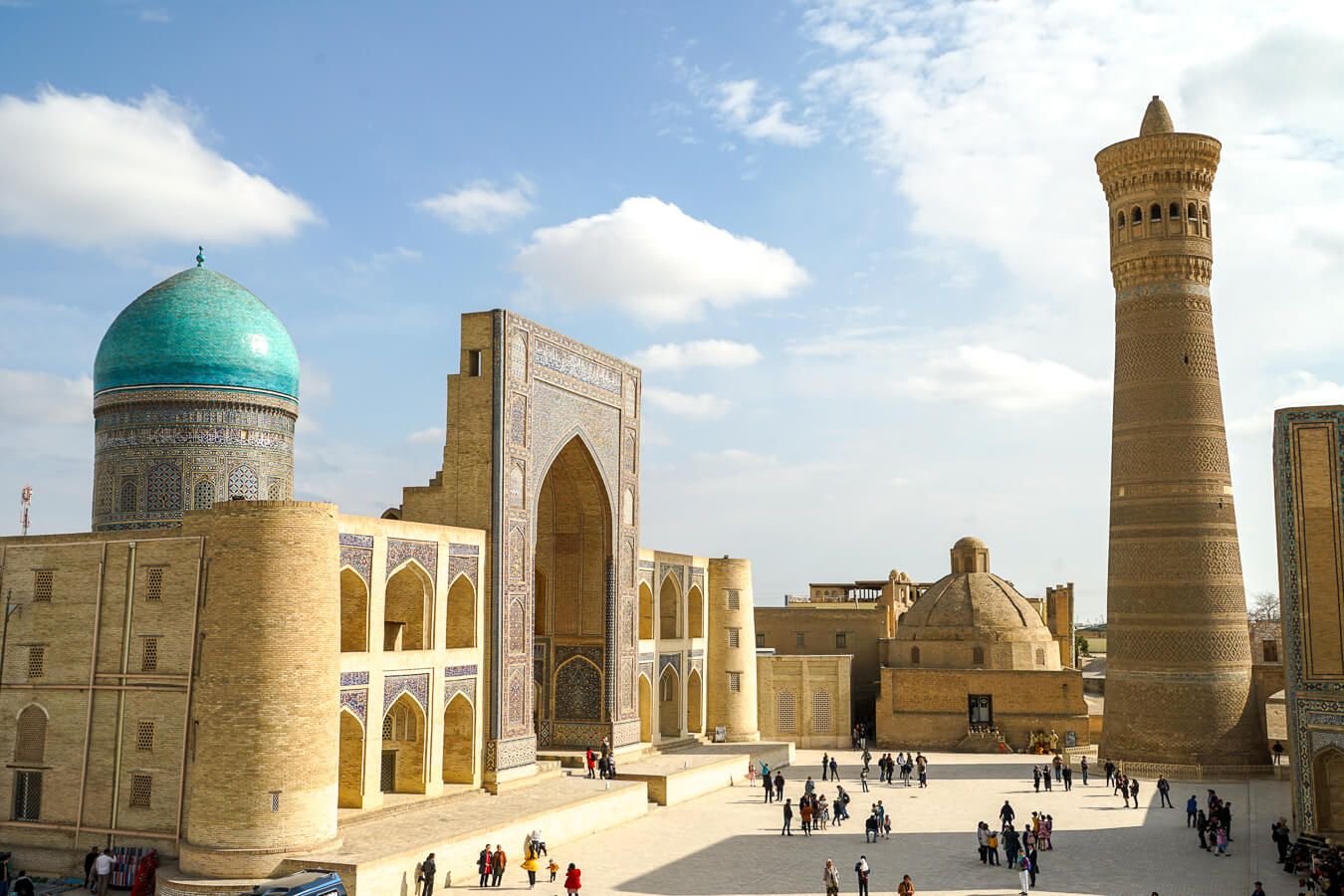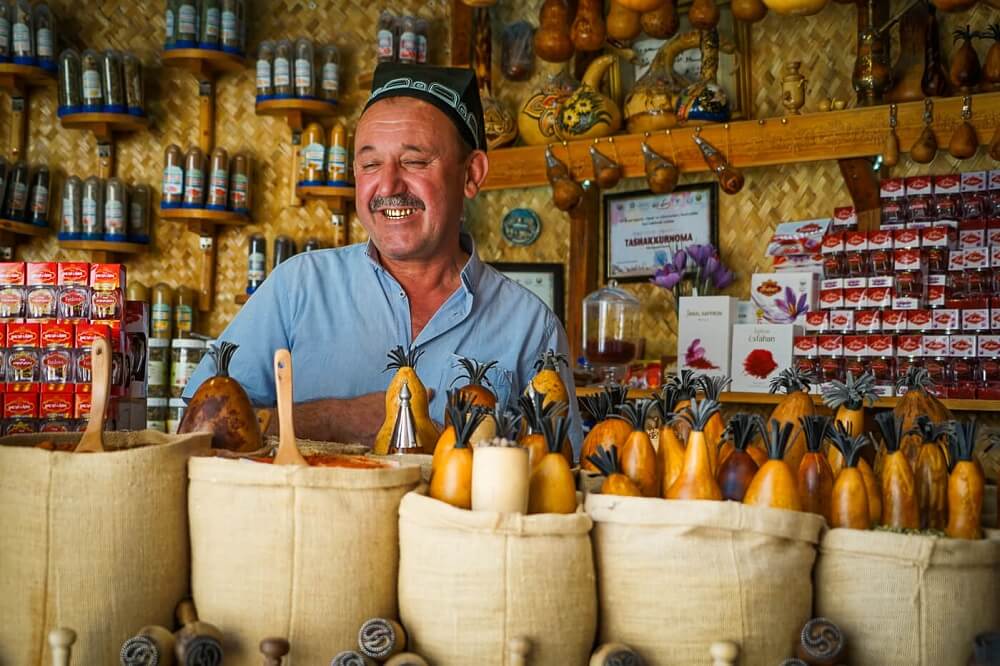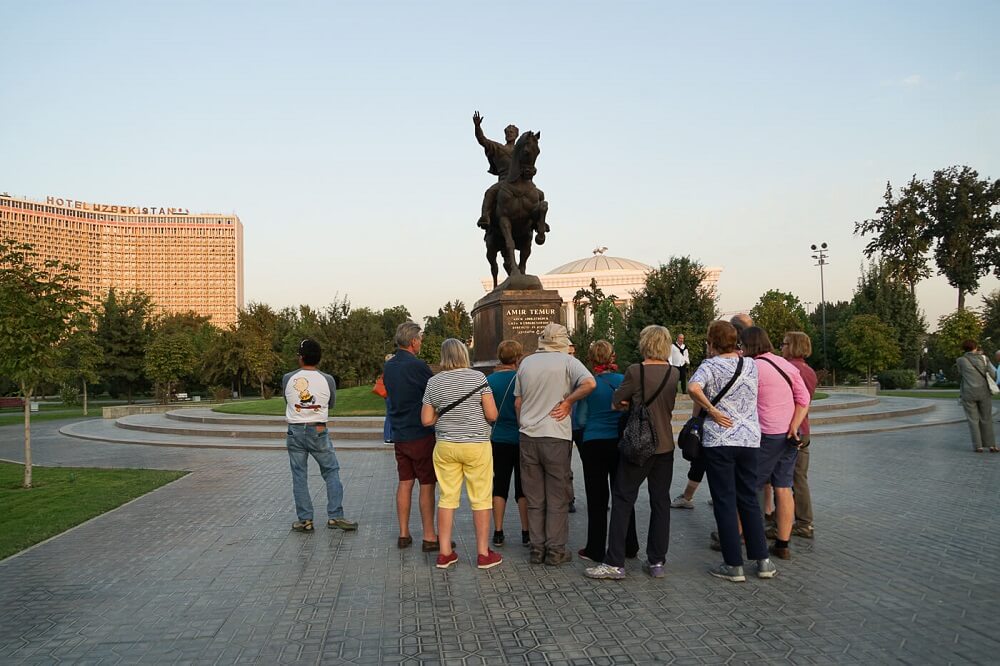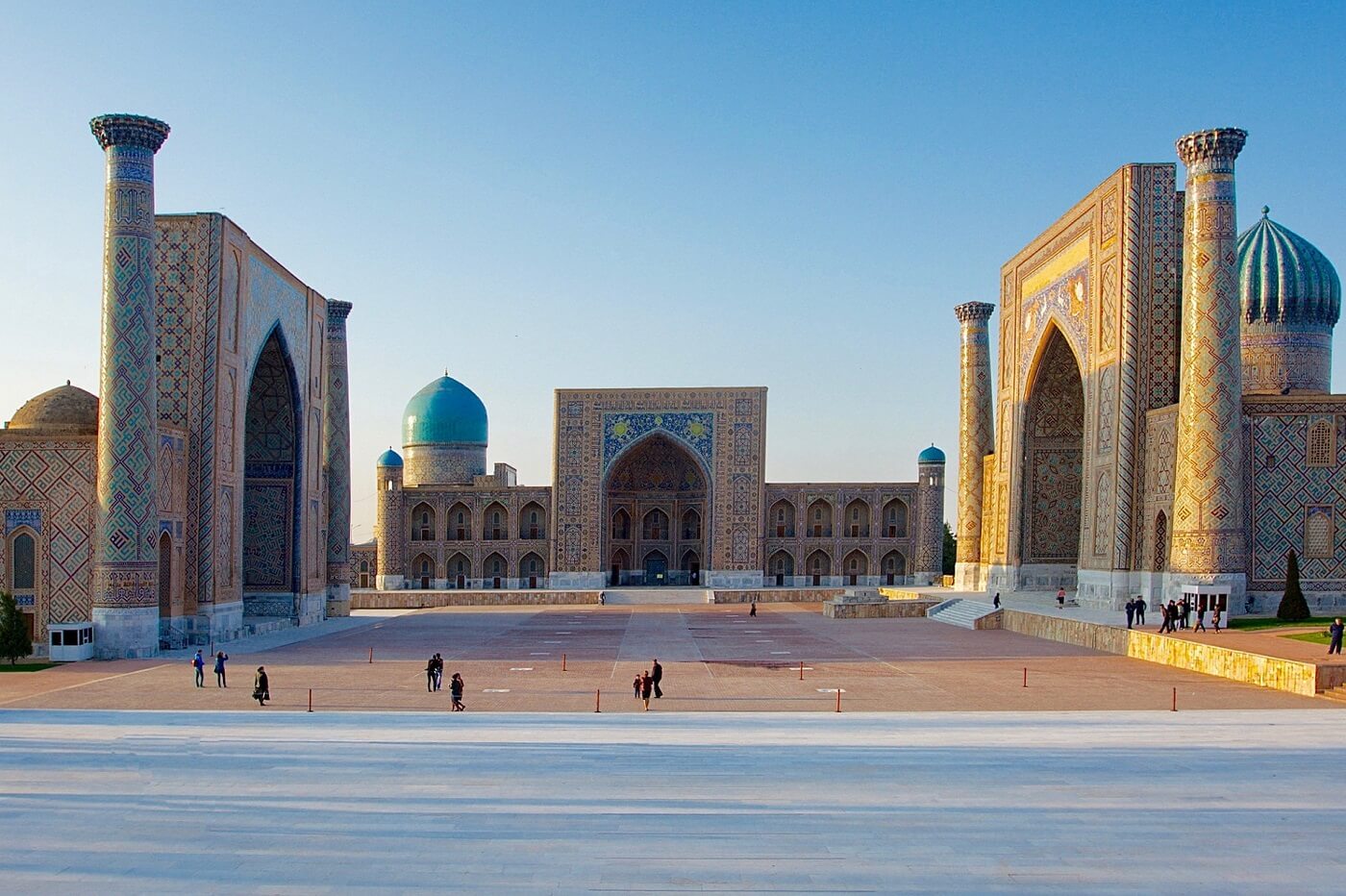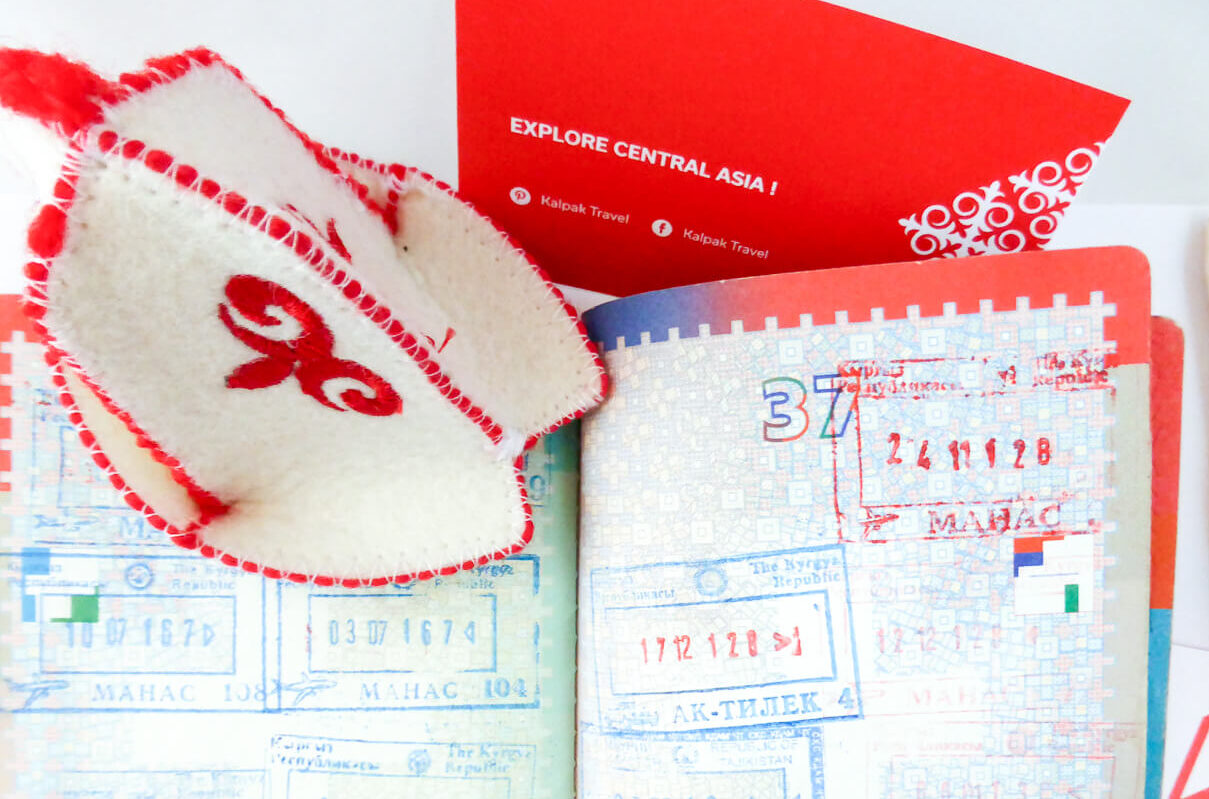With a population of over 3 million people, Tashkent is the largest city in Central Asia. Its history dates back to the first century BC when an urban settlement grew up around a major caravan crossroad on the Silk Road. Much of what you see today, however, dates from the late 20th or 21st centuries, as a devastating earthquake in 1966 destroyed much of the older city. Rebuilding Tashkent was a major Soviet infrastructure project, with laborers coming to work here from across the Soviet Union.
We will start the day’s sightseeing at the Monument of Courage, which remembers the victims of the earthquake. We will then walk to Independence Square, a symbol of freedom for Uzbekistan’s citizens, who declared their independence when the Soviet Union collapsed in 1991. Next, we drive to Chorsu Bazaar, Tashkent’s green-domed market, with its acres of spices, fresh produce, and traditional crafts. Our last stop before lunch is the Barak Khan Madrassah, a historical monument that has become a center for local artists and craftsmen. We will also get to Uzbekistan’s holiest relic, the world’s oldest Koran.
Lunch will be served at the Central Asian Plov Center: you had better be hungry! Full of delicious plov, Uzbekistan’s national dish, we will then visit the Museum of Applied Arts, an ornate, rainbow-colored building that was previously the official residence of the Russian Ambassador. We are saving the best until last, however, and we will now go underground to discover the subterranean art gallery that is Tashkent Metro. Each station has was designed by leading Uzbek architects and artists, and their inspirational themes vary from the Soviet space program to the literature of national poet, Alisher Navoi.
At 6:45 pm we will drive to the railway station to get the high-speed Afrosiob train to Samarkand, arriving at 8:53 pm for a late dinner and a comfortable night in the hotel.
Overnight at Hotel Rabat (3*) or similar
Meals: Breakfast, Lunch, Dinner



